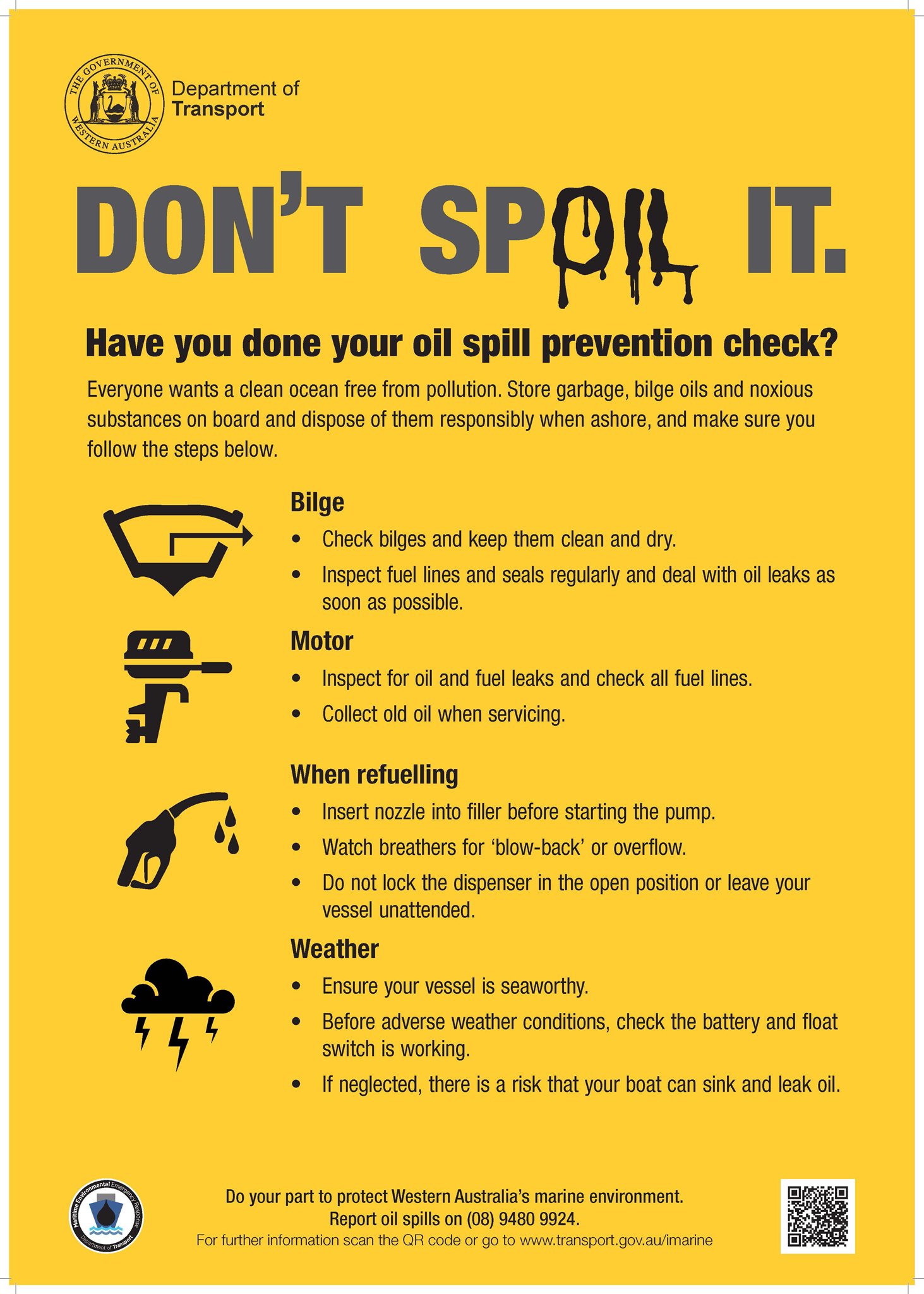Report all maritime environmental emergencies immediately by calling 08 9480 9924.
How to prevent oil pollution when boating
The best way to protect the environment against oil pollution is to adopt good preventative habits.
Here are some tips to prevent oil pollution:
- Fix any oil leaks from your car and boat immediately.
- Keep a supply of oil-absorbent rags at hand to wipe up any spills or leaks.
- Clean and service your boat engine regularly.
- Dispose of used oil or oil-soaked materials at appropriate oil recycling facilities.
- Be familiar with the procedures and facilities of the harbours you use.
- Install an oil absorbent pad in your bilge and check it regularly.
When refuelling your boat
- Refuel on land rather than over water (if possible).
- Check the capacity of fuel tanks before refuelling, and do not overfill.
- Fully insert the nozzle before starting the pump, and do not remove until fuel has stopped flowing (watch the breathers for signs of blow-back or overflow).
- Do not wedge the hand-piece open and leave the nozzle unattended.
Use a cloth to clean any spills up immediately.
What to do if you spill some oil:
- Report any spilled oil immediately.
- If a marine oil spill kit is available, mop up the spill with absorbent pads and dispose of it using the container provided.
Note: It is an offence to pour degreaser or dispersant onto the oil without permission, as it makes clean-up harder and could further damage the environment.
Find out how and when to report an oil spill or marine pollution incident.

Maritime environmental emergency prevention for industry
All Vessel Masters, Port Authorities, Port Operators, Maritime Facility Operators, Boat Harbour Operators and Petroleum Titleholders are responsible for ensuring maritime environmental emergency prevention and mitigation strategies relative to their operations are implemented and maintained at an adequate level.
Prevention and mitigation strategies are outlined in the State Hazard Plan – Maritime Environmental Emergencies document below.
The impact of oil on the environment
The environmental impact of oil depends on:
- chemical and physical properties of the oil
- effect of weathering on the oil
- exposure to marine life.
Oil can often contain toxic chemicals which could kill marine animals that ingest it.
Even if there are no immediate or visible effects, reproduction may be affected and survival rates of their young may be reduced. As oil weathers and disperses over time, its toxicity generally falls.
Exposure to marine life
Marine life that becomes coated or smothered in oil may suffer from:
- burning or skin irritation
- dehydration
- inability to regulate body temperature
- physical injury
- other effects from the sheer weight of the oil.
Even slight oiling can have major effects. Birds exposed to oil can lose their water resistance, resulting in hypothermia when water comes in contact with the skin.
This may cause the bird to preen excessively in an attempt to remove the oil, resulting in ingestion of the oil, which can have lethal consequences.